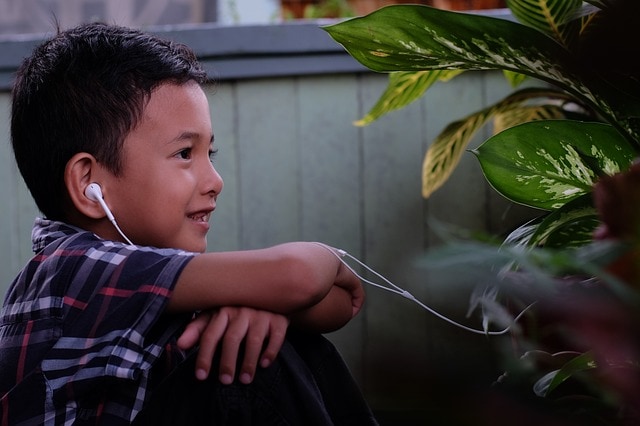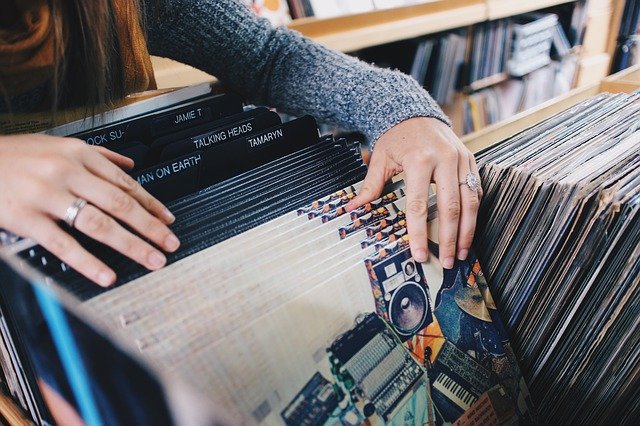It has been called medicine for the soul. It moves us, motivates us, and soothes us. Gives us pleasure and helps alleviate pain. Powerful and highly personal. For many, it is even tied to their very sense of identity. Its appeal is universal; transcending borders, languages and cultures. It is woven into the fabric of our being and the essence of our memories. Using music for mental health is a time-tested recipe for self-healing and soothing.
While music has always been a hobby, an art, and a form of pleasurable activity, it has also become a popular form of alternative treatment. There has been a correlation found between music and mental health, with music offering a range of positive effects on emotional and physical health. In recent years, music therapy has become more widespread.

What are the benefits of easy listening to music on mental health?
Music is known to improve mental health through the following actions:
- Alleviating anxiety and reducing stress
- Regulating negative emotions
- Helping to manage challenging behaviour mood and energy levels
- Improving motivation
How is listening to music related to mental health?
Listening to music has such a deep impact on mental health that it has given rise to its form of therapy known appropriately as music therapy. Music is used actively and thoughtfully to help support people’s health and overall sense of being. With a universal appeal, it can be used by people of all ages to help augment physical and mental health.
You don’t need any form of musical experience to see the benefits of this therapy. Every session is customized to your taste and health goals. Musical therapists are trained and qualified to help people of all backgrounds deal with a plethora of health concerns.
All registered music therapists are highly qualified individuals. In addition to being skilled musicians, they have undergone extensive training and understand the nuances of how musical experiences can dramatically affect your actions, feelings, thoughts and behaviour. It is this unique combination of therapy training and musical ability that allows them to deliver unique experiences that can help you achieve your health goals.

What other benefits are there to using music for mental health?
Music is beneficial for mental health and can improve mental functioning and cognition in the following ways:
- It helps with the development of the brain, especially in the case of children.
- It augments learning abilities as it involves both hemispheres of the brain.
- It supports verbal and non-verbal forms of communication.
- Enhances social behaviour and interaction.
- Imbues positivity to help deal with new situations.
- Boosts memory and attention span.
- Has a major impact on higher brain functions such as self-awareness, inhibition, motivation and emotional regulation.
Most of these beneficial effects are most prominent in babies and children. Babies as young as five months are known to respond better to music than normal speech; and to melody more than lyrics. The sounds and pitches help babies understand the tone and react better.

Does easy listening music provide any physical benefits?
Music goes beyond mental health benefits to provide physical relief as well as improvements in physical functioning. It is believed to affect an individual physically through the following mechanisms:
- Improving balance
- Promoting higher-quality sleep
- Improved motor function
- Regulate heart and breathing rate thereby maintaining blood pressure
- Better physical independence

Music is known to benefit pain management by augmenting the body’s capacity to handle pain through the following:
- Reduce pain perception
- Increase the body’s production of endogenous painkillers
- Help recover faster from injury
- Reduce inflammation
Looks like Bob Marley was on to something when he sang, “The good thing about music is when it hits, you feel no pain.”
Where is it common to see music for mental health being used?
The impact of music on mental and physical health is being increasingly recognized by the medical community within in specific society at large. This is why you will find music being utilized as a form of therapy in several settings such as:
- Prisons and detention centres
- Old-age homes
- Community health programs
- Schools
- Private clinics
- Hospitals
- Child care centres
- Disability facilities

Who would benefit the most from therapeutic listening to music?
The best thing about music is its universal appeal which makes it easy for music to support people of all age groups and afflicted by a wide number of health conditions. Music is an alternative form of treatment for those experiencing mental, physical, social or emotional health concerns. Music as a form of therapy is often adopted for individuals suffering from several medical concerns that affect mood, thinking, behaviour, communication and movement including but not limited to:
- Schizophrenia
- Post-traumatic stress disorder (PTSD)
- Eating disorders
- Stroke or brain injury
- Generalized anxiety disorder
- Attention deficit hyperactivity disorder (ADHD)
- Depression
- Autism
- Physical disabilities
- Cancer
- Bipolar disorder
- Terminal illnesses
- Personality disorders
- Dementia
Sleep music is also great for those who find it hard to switch off their racing mind and go to sleep.
Can therapeutic listening to music be unhealthy?
It might surprise you to know that therapeutic listening to music may have some side effects as well. Research has highlighted how music can stir unpleasant emotions in certain individuals by worsening low moods and promoting negative thoughts. It is therefore vital that you understand the impact of music on your mental health.
Be careful how you use music when dealing with negative feelings or indications of mental health concerns. If you find that music does any of the following then take a step back and reconsider music:
- Extends negative thinking
- Worsens low mood
- Ignites feelings of anger
- Increases a sense of helplessness or overwhelms you

Consider listening to uplifting music in such cases rather than low-key songs that amplify your current feelings.
If you continue to struggle with a low mood, drop music as a form of therapy and find a counsellor or look for an online psychologist in Australia. Remember when it comes to your health you should only engage in all that you find helpful, meaningful and joyful.
How can I make use of music for mental health?
There are three ways you can incorporate music as part of your alternative treatments:
Share music with loved ones
Sharing music that you enjoy with those close to you is a great way of boosting mood and feeling a sense of connection. You can also share music by going to a concert or a local gig. Alternatively, you can start a music club along the lines of a book club to connect with music and one another.
Make music
This is another great way to feel connected and improve your mental wellbeing. Do not worry too much about your musical abilities, the whole point is to enjoy the activity. Look for music groups within your community or develop your skills by joining group music classes.
Make playlists for your different moods and emotional needs
Music is a great way to regulate your feelings and emotional state. You can start by creating a playlist for a particular type of mood or emotion and then expand from there on out once you get comfortable with the idea. Ideate about how music makes you feel during certain moods and place these songs into their respective ‘mood playlist.’



